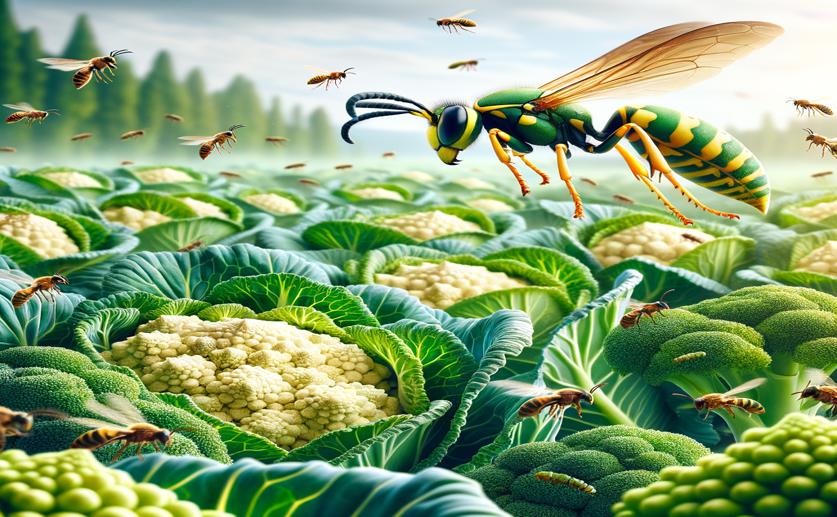
Native Wasps Could Help Control Pests in Cabbage and Broccoli Crops
Jenn Hoskins
26th July, 2024

Image Source: Natural Science News, 2024
Key Findings
- Researchers from the University of Otago studied the effectiveness of native North American wasps in controlling caterpillars on Brassica crops like broccoli and kale
- Polistes metricus was 100% effective at removing caterpillars and significantly reduced plant damage in a controlled environment
- Polistes fuscatus removed over 80% of caterpillars within three hours, suggesting these wasps could be a sustainable alternative to chemical pesticides
AgricultureEnvironmentAnimal Science
References
Main Study
1) Native Polistes wasps (Hymenoptera: Vespidae) hold potential as biocontrol agents for lepidopteran pests of Brassica.
Published 24th July, 2024
https://doi.org/10.1093/jee/toae146
Related Studies
2) Ecosystem services provided by aculeate wasps.
3) Pest Control Potential of Social Wasps in Small Farms and Urban Gardens.
4) Nutrition and division of labor: Effects on foraging and brain gene expression in the paper wasp Polistes metricus.



 13th July, 2024 | Jenn Hoskins
13th July, 2024 | Jenn Hoskins